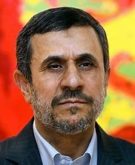Iranwire – “I was born into a religious family, and was 13 or 14 years old when I realized. I don’t know how my family didn’t notice – or maybe they did, but they pretended not to. Unlike the other boys, who loved cars, balls and boisterous play, I always liked playing with dolls.”
Shahnaz is a transgender woman in Iran. Her experience of coming out mirrors that of thousands of Iranian members of the LGBT+ community who struggle under the combined weight of expectations from family, society, the law, tradition and religion. Many feel forced to live in the shadows, marginalized and unseen in communities where people have little to no understanding of sexuality and gender difference.
In the end, and tragically also like countless others, Shahnaz’s parents disowned her when they found out their teenage “son” identified as female. “My family is from Tabriz on my mother’s side, and from Yazid on the father’s side: a very traditional, fanatically religious and patriarchal family that could not accept my female identity in any way.
“From the age of 15, I worked in the Tehran bazaar in the hope that one day I would be able to live an independent life. But due to my circumstances I had to change job many times, and find new work in an environment where no one knew who I was.”
Shahnaz wears a headscarf in public and most of the time, no one notices she is trans. But friends of hers in the LGBT+ community have faced no end of trouble, from abusive behavior to legal difficulties, and heavy fines and bail payments to get the police off their backs.
“If we’re arrested,” she says, “it might end with a simple commitment the first time, but if it happens again, it won’t be so easy. Their hands are free.
“Many of my trans friends have turned to sex work to make ends meet, because of isolation from their families and their difficult circumstances. This puts them at even greater risk of harm.”
One of her friends, a 25-year-old trans woman, was arrested for being a sex worker after police officers raided her home. “She was eventually released after some time in prison. But then she was tried again and sentenced to a long jail term. After she was released the first time, she was no longer the person she had been because of the injuries she had suffered in there.
“As trans people we have no security or family life, not in the streets nor in society. There is no law to protect us – in fact, we have to run away from the law. No one cares about the situation we’re in. We are all seen as sinful human beings, at best patients in need of treatment.”
The Islamic Republic has treated the LGBT+ community with hostility ever since its foundation. Iranian law grants transgender people the right to gender reassignment surgery with a court’s permission, but they are not generally provided with the right healthcare and rarely supported in the event of injury or violence.
The Islamic Penal Code also prescribes the death penalty for homosexuality. The so-called “honor killings” of gay Iranians in communities allowed to take place with impunity, and even talking about sexual and gender minorities can lead to severe punishment. Last week, Tehran’s FATA cyber police arrested of the director of several Persian-language Telegram channels on charges of “corruption on earth” for discussing homosexuality online.
In such an atmosphere, members of the Iranian LGBT+ community, who are under pressure from all sides, often prefer to stay on the sidelines: living dangerous lives while constantly dreaming of better.
 Shabtabnews In this dark night, I have lost my way – Arise from a corner, oh you the star of guidance.
Shabtabnews In this dark night, I have lost my way – Arise from a corner, oh you the star of guidance.



